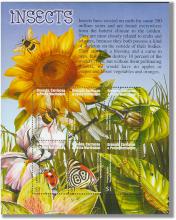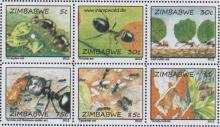What are the implications of suddenly losing billions of insects across an entire farm landscape?
Insecticides can be an important tool for producers to use in times of emergency to prevent a pest from economically damaging crops. To understand the broad implications of current insect management practices let’s focus for a moment on one insecticide application method in one crop: foliar sprays in oilseed sunflowers. Sunflowers are an “entomophilous” (insect loving) crop, offering a multitude of resources to a diverse assortment of insects. This diversity and abundance of critters visiting a sunflower include a number of pests that often are the targets of insecticidal sprays. In a recent study of South Dakota sunflower fields, foliar insect densities were found to be more than 290,000 individuals per acre, not including any surface-dwelling or below-ground organisms. If a producer decides to use an insecticide spray on a 100-acre sunflower field, this will end more than 29 million many-legged lives. What are the implications of suddenly losing billions of insects across an entire farm landscape?










